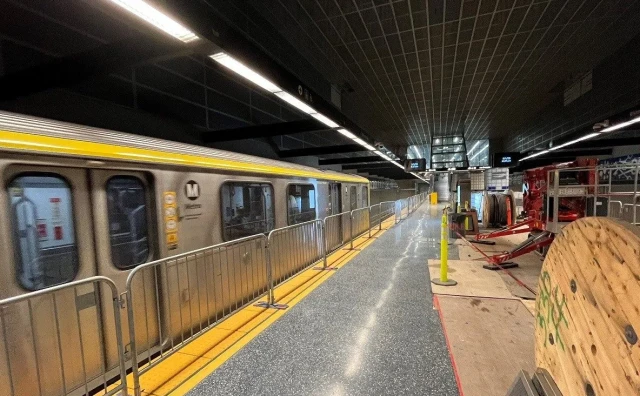With our free press under threat and federal funding for public media gone, your support matters more than ever. Help keep the LAist newsroom strong, become a monthly member or increase your support today during our fall member drive.
LA City Council Members Just Lost A Way To Block Affordable Housing In Their Districts

If you've ever wondered why Los Angeles has so little housing for low-income and homeless residents, here's one reason. Until now, individual City Council members have been able to block new affordable housing projects in their districts by doing... nothing.
How? By withholding a "letter of acknowledgement," which developers have needed to get city funding for their projects.
When angry neighbors cry "not in my backyard" to this kind of housing, council members could respond by pocketing that letter and letting the project die.
Critics call it a "pocket veto."
"It's too easy to block, delay or alter a project without anyone knowing exactly why," said Public Counsel attorney Shashi Hanuman, who is involved in a lawsuit against the city over the letter requirement.
But on Tuesday, the L.A. City Council voted to take that power away from themselves.
They didn't have much of a choice.
A new state law recently signed by Governor Jerry Brown pulls state funding from any development that requires a letter of acknowledgment from local lawmakers.
Meaning, if L.A. wants to tap the state's pot of housing money, they need to eliminate this rule.
Public Counsel's Hanuman said giving veto power to individual council members has had a chilling effect, especially in districts with a reputation for resisting affordable and supportive housing.
"Some developers won't even go there, because they know they won't get the letter," Hanuman said.
L.A. has a homeless population of more than 30,000 people. Supportive housing is designed to provide those residents with the kind of services they need to get back on their feet.
Earlier this year, council members pledged to greenlight at least 222 new supportive housing units in each of their districts by July 1, 2020.
But certain city council districts still have very little supportive housing, according to an online tracker by the United Way of Greater Los Angeles. And four districts have yet to see any new projects move forward.
Those include Paul Koretz's district covering certain Westside communities and parts of the San Fernando Valley, Joe Buscaino's district stretching down to San Pedro, and Bob Blumenfield's and Mitch Englander's districts in the western San Fernando Valley.
Even with the letter requirement now gone, supportive housing proponents aren't expecting smooth sailing ahead.
"Those who are opposed to supportive housing are likely to find alternative ways to potentially delay or block such development," said Marc Tousignant, Senior Program Director for Enterprise Community Partners, Inc. in Southern California.
"We need to be cautious in developing a system that requires approval from community members which could be potentially discriminatory toward residents with certain disabilities," he said.
At LAist, we believe in journalism without censorship and the right of a free press to speak truth to those in power. Our hard-hitting watchdog reporting on local government, climate, and the ongoing housing and homelessness crisis is trustworthy, independent and freely accessible to everyone thanks to the support of readers like you.
But the game has changed: Congress voted to eliminate funding for public media across the country. Here at LAist that means a loss of $1.7 million in our budget every year. We want to assure you that despite growing threats to free press and free speech, LAist will remain a voice you know and trust. Speaking frankly, the amount of reader support we receive will help determine how strong of a newsroom we are going forward to cover the important news in our community.
We’re asking you to stand up for independent reporting that will not be silenced. With more individuals like you supporting this public service, we can continue to provide essential coverage for Southern Californians that you can’t find anywhere else. Become a monthly member today to help sustain this mission.
Thank you for your generous support and belief in the value of independent news.

-
Restaurants share resources in the food hall in West Adams as Los Angeles reckons with increasing restaurant closures.
-
It will be the second national day of protest against President Donald Trump.
-
The university says the compact, as the Trump administration called it, could undermine free inquiry and academic excellence.
-
This is the one time you can do this legally!
-
Metro officials said it will be able to announce an opening date “soon.”
-
While working for the county, the DA’s office alleges that 13 employees fraudulently filed for unemployment, claiming to earn less than $600 a week.







